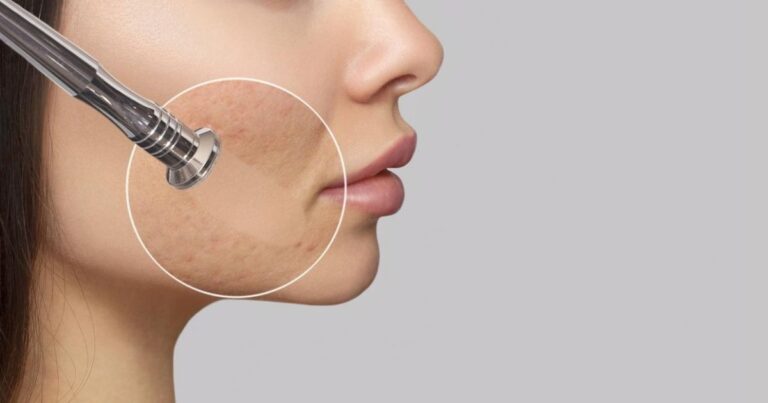Breast surgery is a significant procedure that requires careful consideration of various factors to ensure optimal healing. One of the most crucial aspects that can influence recovery is your skin type. Understanding how your skin type affects healing after breast surgery can help you prepare better and take necessary precautions for a smoother recovery process.
How Your Skin Type Affects Healing After Breast Surgery
Understanding Different Skin Types
Skin types vary from person to person, and each type has unique characteristics that can impact healing. The primary skin types include oily, dry, combination, and sensitive skin. Oily skin tends to produce more sebum, which can lead to clogged pores but may also provide a protective barrier.
Dry skin lacks moisture, making it prone to cracking and irritation. Combination skin exhibits characteristics of both oily and dry skin, while sensitive skin is more reactive to external factors.
- Oily Skin: Produces excess oil, potentially leading to clogged pores.
- Dry Skin: Lacks moisture, prone to cracking and irritation.
- Combination Skin: Features both oily and dry areas.
- Sensitive Skin: Reacts easily to external factors.
Impact on Wound Healing
The healing process after breast surgery can be significantly influenced by your skin type. Oily skin may heal faster due to its natural moisture, but it can also be prone to infections if not properly managed.
Book A Consultation With Dr Tarek Bayazid
Top-rated Plastic Surgeon For Breast Augmentation in Dubai
Installment Plan Available
Dry skin may take longer to heal as it lacks the necessary moisture to support cell regeneration. Combination skin may experience varied healing rates, while sensitive skin may require extra care to prevent irritation and complications.
- Oily Skin: Faster healing, but risk of infection.
- Dry Skin: Slower healing due to a lack of moisture.
- Combination Skin: Varied healing rates.
- Sensitive Skin: Needs extra care to prevent irritation.
Potential Complications Based on Skin Type
Each skin type comes with its own set of potential complications during the healing process. Oily skin may develop acne or infections, while dry skin can experience increased scarring and delayed healing. Combination skin might face uneven healing, and sensitive skin is at risk of allergic reactions and inflammation.
- Oily Skin: Acne, infections.
- Dry Skin: Increased scarring, delayed healing.
- Combination Skin: Uneven healing.
- Sensitive Skin: Allergic reactions, inflammation.
Factors Influencing Post-Surgery Skin Healing
Age and Skin Elasticity
Age plays a significant role in skin healing. Younger skin tends to be more elastic and resilient, allowing for quicker recovery. As we age, skin loses elasticity, which can slow down the healing process. Maintaining skin elasticity through proper skincare and hydration is crucial for all age groups.
- Younger Skin: More elastic, quicker recovery.
- Older Skin: Less elastic, slower healing.
Nutrition and Hydration
Proper nutrition and hydration are vital for skin healing. A balanced diet rich in vitamins and minerals supports cell regeneration and repair. Staying hydrated ensures that the skin remains supple and resilient, aiding in faster recovery.
- Balanced Diet: Supports cell regeneration.
- Hydration: Keeps skin supple and resilient.
Smoking and Alcohol Consumption
Smoking and alcohol consumption can negatively impact skin healing. Smoking reduces blood flow, delaying the delivery of essential nutrients to the skin. Alcohol dehydrates the body, affecting skin moisture levels and slowing down the healing process.
- Smoking: Reduces blood flow, delays healing.
- Alcohol: Dehydrates, affects skin moisture.
Skin Care Routine for Optimal Healing
Cleansing and Moisturizing
A proper skincare routine is essential for optimal healing after breast surgery. Cleansing helps remove impurities and prevent infections, while moisturizing keeps the skin hydrated and promotes healing. Choose gentle, non-irritating products suitable for your skin type.
- Cleansing: Removes impurities, prevents infections.
- Moisturizing: Keeps skin hydrated, promotes healing.
Sun Protection
Protecting your skin from the sun is crucial during the healing process. UV rays can damage healing skin and increase the risk of scarring. Use a broad-spectrum sunscreen with a high SPF to shield your skin from harmful rays.
- Broad-Spectrum Sunscreen: Shields skin from UV rays.
- High SPF: Reduces risk of scarring.
Scar Management Techniques
Effective scar management can improve the appearance of surgical scars. Techniques such as silicone gel sheets, massage, and topical treatments can help reduce scar formation and promote smoother skin.
- Silicone Gel Sheets: Reduce scar formation.
- Massage: Promotes smoother skin.
- Topical Treatments: Improve scar appearance.
Recovery Timeline Based on Skin Type
Oily Skin
Oily skin may experience a faster recovery due to its natural moisture barrier. However, it is essential to keep the skin clean to prevent infections and acne.
- Faster Recovery: Due to natural moisture.
- Prevent Infections: Keep skin clean.
Dry Skin
Dry skin may take longer to heal as it lacks moisture. Regular moisturizing and hydration are crucial to support the healing process.
- Longer Healing: Due to a lack of moisture.
- Regular Moisturizing: Supports healing.
Combination Skin
Combination skin may have varied healing rates, with some areas recovering faster than others. Tailor your skincare routine to address the specific needs of each area.
- Varied Healing Rates: Different areas recover at different speeds.
- Tailored Skincare: Address specific needs.
Sensitive Skin
Sensitive skin requires extra care to prevent irritation and complications. Use gentle products and avoid harsh chemicals to support healing.
- Extra Care Needed: Prevent irritation.
- Gentle Products: Avoid harsh chemicals.
Managing Post-Surgery Skin Concerns
Dealing with Swelling and Bruising
Swelling and bruising are common after breast surgery. Applying cold compresses and keeping the head elevated can help reduce these symptoms.
- Cold Compresses: Reduce swelling.
- Elevated Head: Minimizes bruising.
Addressing Skin Discoloration
Skin discoloration may occur during the healing process. Using topical treatments and avoiding sun exposure can help even out skin tone.
- Topical Treatments: Even out skin tone.
- Avoid Sun Exposure: Prevents further discoloration.
Treating Infections and Complications
Infections and complications can hinder the healing process. Keep the surgical area clean and follow your surgeon’s instructions to prevent and treat infections.
- Keep Area Clean: Prevent infections.
- Follow Instructions: Treat complications.
The Role of Genetics in Skin Healing
Genetic Factors Affecting Wound Healing
Genetics can play a significant role in how your skin heals after surgery. Some individuals may have a genetic predisposition to faster or slower healing, affecting the overall recovery process.
- Genetic Predisposition: Affects healing speed.
- Overall Recovery: Influenced by genetics.
Identifying Potential Genetic Risks
Understanding your genetic risks can help you prepare for potential complications. Consult with a healthcare professional to assess your genetic factors and tailor your recovery plan accordingly.
- Consult Healthcare Professional: Assess genetic risks.
- Tailor Recovery Plan: Based on genetic factors.
Best Breast Augmentation Surgeon in Dubai: Insights from Dr. Tarek
Dr. Tarek emphasizes the importance of understanding your skin type for optimal healing after breast surgery. He advises patients to follow a personalized skincare routine and consult with their surgeon for tailored advice.
- Personalized Skincare Routine: Essential for optimal healing.
- Consult Surgeon: For tailored advice.
Advanced Treatments for Improved Skin Healing
Laser Therapy
Laser therapy can enhance skin healing by promoting collagen production and reducing scar formation. It is a non-invasive treatment option that can improve the appearance of surgical scars.
- Promotes Collagen Production: Enhances healing.
- Reduces Scar Formation: Improves appearance.
Platelet-Rich Plasma (PRP) Treatment
PRP treatment involves using your blood’s platelets to accelerate healing. This treatment can improve skin texture and reduce scarring after surgery.
- Accelerates Healing: Using platelets.
- Improves Skin Texture: Reduces scarring.
Topical Growth Factors
Topical growth factors can aid in skin regeneration and repair. These products can be applied to the surgical area to enhance healing and improve skin quality.
- Aids Skin Regeneration: Enhances healing.
- Improves Skin Quality: Through topical application.
Final Thoughts
Understanding how your skin type affects healing after breast surgery is crucial for a successful recovery. By tailoring your skincare routine and following expert advice, you can ensure optimal healing and minimize complications. Remember to consult with your healthcare provider for personalized guidance and support throughout your recovery journey.
FAQs
Can skin type affect the final appearance of breast surgery scars?
Yes, skin type can affect the final appearance of breast surgery scars. Oily skin may heal with less noticeable scars, while dry skin may experience more prominent scarring. Proper scar management techniques can help improve the appearance of scars regardless of skin type.
What are the best products for skin healing after breast surgery?
The best products for skin healing after breast surgery include gentle cleansers, moisturizers, and sunscreens suitable for your skin type. Silicone gel sheets and topical treatments can also aid in scar management. Consult with your surgeon for product recommendations tailored to your needs.
How long does it take for skin to heal after breast surgery?
The healing time for skin after breast surgery varies depending on individual factors such as skin type, age, and overall health. Generally, initial healing occurs within a few weeks, but complete recovery may take several months. Follow your surgeon’s post-operative care instructions for optimal healing.









